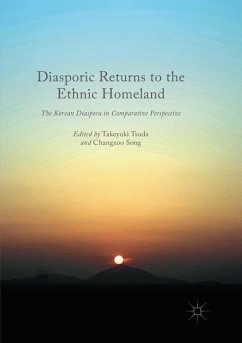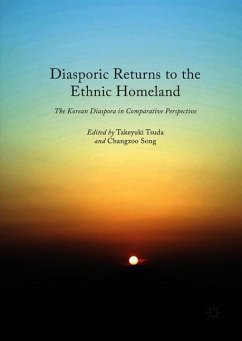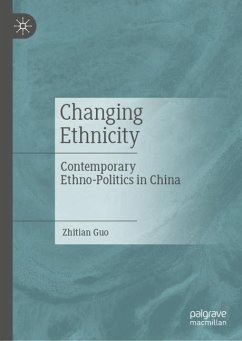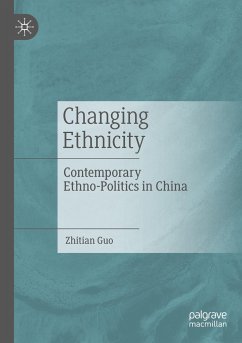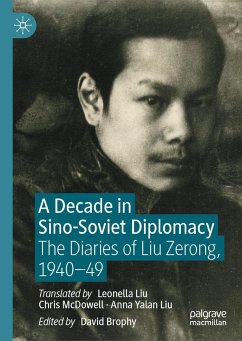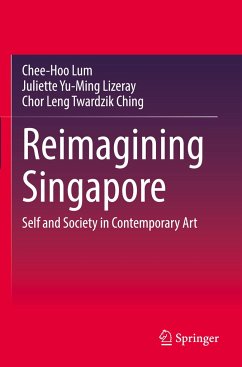
Minzu as Technology
Ethnic Identity and Social Media in Post 2000s China
Versandkostenfrei!
Versandfertig in 6-10 Tagen
98,99 €
inkl. MwSt.
Weitere Ausgaben:

PAYBACK Punkte
49 °P sammeln!
This book provides a unique ethnographic approach to the understanding of ethnogenesis in the Chinese context, with a particular focus on how it is being reshaped in the post-2000s era. It reinterprets the Chinese concept of ethnicity, or minzu, by investigating its evolution in relation to the proliferation of media technologies.In an era characterized by digital connectivity, the quest for ethnic identity has taken on new dimensions. Ethnic groups, like the Sibe community from Xinjiang, are now extending beyond the state's traditional interpretations of minzu. Leveraging the power of media t...
This book provides a unique ethnographic approach to the understanding of ethnogenesis in the Chinese context, with a particular focus on how it is being reshaped in the post-2000s era. It reinterprets the Chinese concept of ethnicity, or minzu, by investigating its evolution in relation to the proliferation of media technologies.
In an era characterized by digital connectivity, the quest for ethnic identity has taken on new dimensions. Ethnic groups, like the Sibe community from Xinjiang, are now extending beyond the state's traditional interpretations of minzu. Leveraging the power of media technology, they are articulating and expressing their ethnic identities in new and personalised ways. These developments have led to the emergence of what this book terms 'networked ethnicity,' a fresh manifestation of ethnic identity formation in the era of social media.
The pivotal question this book attempts to answer is: How does an ethnic group in China todayunderstand its identity, and what role does technology and media play in that process? This exploration offers a critical perspective on the complex interplay between digital technology, individual agency, and ethnic identity formation.
This study will be of interest to scholars of cultural studies, Chinese society, ethnic studies, and media studies, or anyone keen to understand the changing landscape of ethnic identity in the digital age.
In an era characterized by digital connectivity, the quest for ethnic identity has taken on new dimensions. Ethnic groups, like the Sibe community from Xinjiang, are now extending beyond the state's traditional interpretations of minzu. Leveraging the power of media technology, they are articulating and expressing their ethnic identities in new and personalised ways. These developments have led to the emergence of what this book terms 'networked ethnicity,' a fresh manifestation of ethnic identity formation in the era of social media.
The pivotal question this book attempts to answer is: How does an ethnic group in China todayunderstand its identity, and what role does technology and media play in that process? This exploration offers a critical perspective on the complex interplay between digital technology, individual agency, and ethnic identity formation.
This study will be of interest to scholars of cultural studies, Chinese society, ethnic studies, and media studies, or anyone keen to understand the changing landscape of ethnic identity in the digital age.






